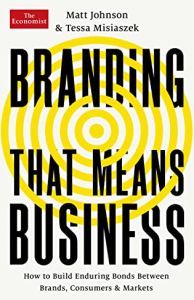Join getAbstract to access the summary!

Join getAbstract to access the summary!
Matt Johnson and Tessa Misiaszek
Branding That Means Business
How to Build Enduring Bonds Between Brands, Consumers and Markets
Public Affairs, 2022
What's inside?
Psychology and marketing experts provide a helpful guide to building stand-out brands in an era of digital commodification.
Recommendation
Marketing and psychology experts Matt Johnson and Tessa Misiaszek describe brands as if they were people. They advise firms to create brands that have strong personalities, purpose and meaning. Digitization and commodification, they warn, direct consumers toward generic products. To compete, brands must inspire customers with emotion and forge links based on values and identity. Johnson and Misiaszek offer clear explanations of marketing concepts, grounding them in fascinating stories of contemporary brands that have flourished by connecting with consumers.
Summary
About the Authors
Matt Johnson is a professor of marketing psychology at the Hult International Business School and head of NeuroScienceOf, a neuromarketing firm. Tessa Misiaszek is head of research at the Korn Ferry Institute, co-founder of the Happy at Work podcast and an instructor in Harvard’s Continuing Education Division.


















Comment on this summary